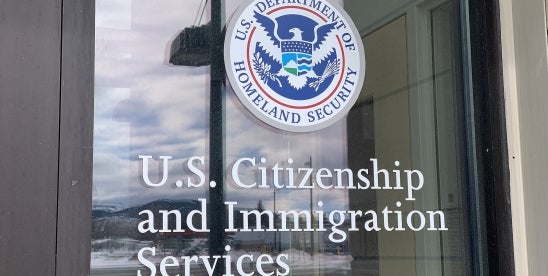In recent months, the U.S. Immigration and Citizenship Service (USCIS) has sent notices of intent to terminate (NOITs) to EB-5 Regional Centers that have not paid the “integrity fees” introduced by the EB-5 Reform and Integrity Act (RIA) of 2022.
Congress created these annual integrity fees to fund many of the new integrity activities, such as USCIS site visits, audits, and overseas investigations. Depending on the number of EB-5 investors the Regional Center sponsors, the integrity fee is either $20,000 or $10,000 per year.
USCIS’s implementation of the RIA was confusing to some stakeholders. On March 2, 2023, nearly a year after the RIA was passed, USCIS announced that the first integrity fee would be payable between March 2, 2023 (the same day as the announcement) and April 3, 2023. However, given the short notice and the confusion that arose about how the fees would be calculated, USCIS kept the integrity fee payment portal open beyond the April 3 due date. Due to continued ambiguity, USCIS ultimately announced an October 1, 2023 due date for the integrity fees for both FY 2023 and FY 2024. USCIS also confirmed on its website that it would take steps to close any regional center that did not pay the required integrity fees for FY 2023 and FY 2024 on or before December 30, 2023. USCIS only posted these announcements on its website; it did not send notifications of these deadlines to the regional centers.
Now, approximately seven months later, regional centers are receiving NOITs for nonpayment of integrity fees. Some regional centers have made a conscious decision not to pay the integrity fees as a “winddown” measure. USCIS has clarified on its website that sponsored EB-5 investors who filed I-526 petitions before the RIA was passed in March 2022 (pre-RIA investors) could still have their I-526 and I-829 petitions approved on their merits if all other eligibility criteria are met, such as job creation.
Other regional centers may have wanted to continue to be designated under the RIA but were unaware of the integrity fee due date prior to receiving a NOIT. In addition, the NOIT states that USCIS does not accept late payments, so these regional centers cannot correct the payment issue in response to the NOIT even if they wish to continue to be designated.
New investors who filed I-526E petitions with a specific regional center after the RIA was passed (RIA investors) may face denial of their I-526E petitions if the regional center designation is removed. These investors must follow the “amendment process” provided in the RIA and join a new regional center in good standing. However, USCIS has not issued regulations on this process, and investors could face thousands of dollars in fees when they join a new regional center, even though the issue arises on behalf of the regional centers, not the investors.
According to the RIA, USCIS must impose an appropriate penalty on regional centers that do not pay the integrity fees within 30 days of the due date and revoke a regional center’s designation if it does not pay within 90 days of the due date. USCIS did not begin sending NOITs to regional centers that had not paid the integrity fees until July 2024, seven months after the fees were due. It does not appear that USCIS notified regional centers of any penalties before sending the NOITs, as required. Had they done so, the regional centers would have known the fee was due and that their designation could be revoked if they did not pay by the December 30, 2023 deadline.
As a result, some regional centers that wish to retain their designation now face termination without any ability to redress nonpayment. A lawsuit seeking a preliminary injunction has been filed in a federal court in Montana challenging USCIS’s decision to terminate a regional center without sending notice or imposing an appropriate penalty before initiating termination proceedings. The judge in this case found that USCIS appears to have acted arbitrarily when it ruled multiple times that it had the discretion to change the integrity fee payment deadline and not to impose late fees, but could not be flexible in its decision to terminate the centers. It is not yet clear whether USCIS will appeal the decision or change its position and exercise its discretion to allow late payments of the integrity fee.
Many EB-5 stakeholders, including industry groups and bar associations, have petitioned USCIS to allow such late payments by regional centers seeking to retain their designation. Allowing late payments of the integrity fee would result in increased fees to the integrity fund to allow for additional investigations and audits. In addition, if these regional centers retain their designation, they will be required to participate in the annual compliance process with USCIS, which requires the regional center to report to the government on the progress of its projects, which would likely contribute to the overall integrity of the EB-5 program.

